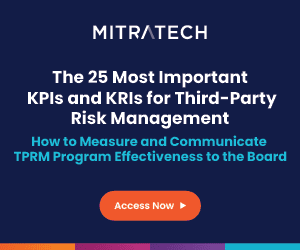Companies large and small are expected to deepen their focus on diversity, equity and inclusion (DEI) programs over the next several years. But as Janet M. Stovall and Evynn McFalls of NeuroLeadership Institute explain, going beyond lip service means committing to constant improvement efforts.
Several months after a splashy public announcement about advancing diversity, equity and inclusion, a company promoted a Black woman to its senior leadership team. Her colleagues celebrated her promotion and looked forward to her ability to enact real change. But soon after the announcement, her workload increased but what didn’t was her ability to influence the organization with her unique perspective.
Instead of digging in to advance organizational DEI goals, she’s found herself working to advance the priorities of her peers. Nobody sees — much less acknowledges — her contributions, often overlooking them in favor of her peers with long-standing institutional power. It doesn’t take long for her to realize that, intentionally or not, she’s not a leader among equals. Instead, she’s a checked box, swept up in the inertia of business as usual.
Her experience isn’t uncommon. Companies commit to DEI but then fail to embed that commitment in their strategy, leaving little chance for thoughtful execution or measurable impact.
It’s no surprise, then, that the role of the chief diversity officer is a revolving door, with stints averaging no more than two years — about five years fewer than the average CEO tenure.
The issue boils down to an incongruence between what organizations say externally and what they do internally. It’s what happens when priorities, habits and systems — the shared everyday shorthand of employee culture and the foundation upon which organizations conceptualize and execute cultural transformation — aren’t sufficiently designed to deliver the change they’re after.
Understanding the burden of bias
Our brains like what’s similar. In relationships, recognizing commonalities, like communication and working styles, can help us quickly establish a sense of relatedness with others. That sense encourages us to rally around a unified purpose, and it could help us empathize with our peers even when we’re in conflict with them.
However, similarity can be a problem when we’re faced with the unfamiliar. When we rely too heavily on commonalities as a signifier of trust, we risk excluding or outright rejecting people who aren’t like us. This can lead to friction with new team members who register as significantly different.
Rather than advancing the organization, these “othered” individuals spend time and energy assessing social threats, from being perceived as “angry” for speaking up and masking their own personalities to working twice as hard for half the reward. Similarity bias can render moot the potential benefits of a diverse team.
This invisible tax burdens marginalized professionals, whose increased visibility can translate into taking on additional labor and navigating a minefield of microaggressions as they climb the corporate ladder, where they are even less-represented. According to research, the experience is so draining they withdraw from their peers and organizations or seek new careers altogether.
Diverse teams are smarter but only if organizations commit to inclusive priorities, habits and systems that enable people with diverse perspectives to belong.
As organizations signal their priority is to advance DEI through the appointment of chief diversity officers, they also must take an all-hands-on-deck approach to rooting out the biases and problematic habits that jeopardize these initiatives before they start. Here’s how:
Don’t fear discomfort
As a part of their training, healthcare practitioners are asked to employ cultural competence and humility when working with patients. According to clinical psychologist Shamaila Khan, this means they’re building knowledge of the beliefs, practices and experiences of people different from themselves and practicing cultural humility by recognizing that, regardless of their knowledge, they “will never be fully competent about the evolving and dynamic nature of a patient’s experiences.”
Physician or not, cultural humility can go a long way because it allows us to recognize that our knowledge of people’s lived experiences is limited. Start by recognizing the limitations of your perceptions and understand that your path probably differs from that of your colleagues. Like you, they bring all of their experiences and thoughts with them to work. Curiosity and a commitment to learning about those experiences can steer you toward removing bias from your organization’s systems.
As you navigate this process, you’ll likely encounter some discomfort — a common yet often valuable part of building a more diverse, higher-performing team. Don’t let that discomfort detract from your commitment to a more inclusive organization.
Rethink your habits
Mentorship, platform-sharing and “upskilling ” are valuable tools for inclusion and allyship in the workplace. However, before you assume somebody’s communication or working styles are wrong, check your premise and remember that there is a costly difference between coaching people toward success and micromanaging.
Don’t fall prey to false stereotypes that presume your colleagues are incompetent or otherwise a poor fit for your workplace and be careful not to unintentionally signal as much. Instead, practice curiosity and openness. Assess whether the environment and available resources can support their work. Ask yourself if not doing it your way means not doing it right.
When we collaboratively design and model what great looks like, and provide tools to achieve it, we empower all contributors to take ownership of their role in achieving shared goals. That sense of ownership can better position DEI champions at your organization to feel engaged, included and aware of their impact.
Adopt a growth mindset
Having a growth mindset positions an organization for continuous improvement in equity. It establishes inclusion as a verb, not a noun, by recognizing that equity doesn’t happen organically, easily or overnight — and public declarations don’t speed up the progress.
Instead, document where your organization started its DEI journey, define objectives and set measurable goals aligned with business priorities. Experiment with your approaches and measure progress by tying them to observable habits. Actively include voices and experiences that aren’t similar, and let diverse teams truly demonstrate they’re smarter. As you work to develop new, system-spanning habits that align with your organization’s DEI priorities, a socially ingrained growth mindset acts as the foundation upon which a psychologically safe culture where experimentation, continuous learning and transparency — all necessary ingredients for successful change — are not just possible but encouraged.
You can’t pull a magic lever to make your organization more equitable, inclusive or diverse overnight, and you can’t enable belonging simply by changing the employee mix. Even if you could, sustaining positive change is a challenge. But you can build a workplace environment that makes everyone better for being in it. Only by recognizing inclusion as a dynamic, living process that requires continuous learning and development can we create environments where every team member is empowered to participate and able to belong.



 Janet M. Stovall
Janet M. Stovall Evynn McFalls
Evynn McFalls








